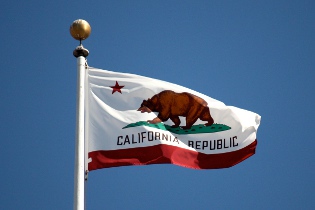
In an op/ed piece in a major California newspaper, one of the leaders of the multitude of Indian tribes in the state comes out as an advocate for consumers and players in the ongoing debate over online poker.
In the San Diego Union-Times Bo Mazzetti, the chairman of the Rincon Band of Luiseno Indians (which own Harrah’s Rincon in southern California), discusses the ongoing battle in the halls of the California General Assembly in Sacramento regarding online gaming. “Legalization of online gaming, specifically internet poker, appears to be moving forward,” Mazzetti wrote in his op/ed. “Resolution of the seven-year back and forth among legislators and potential operators still face numerous obstacles…missing (in the debate) is a discussion of the risks of online poker and the conditions necessary to secure the game.”
Mazzetti accurately points out that, without state or federal regulation on the activity, only offshore sites that aren’t bound by any U. S. law would be available for U. S. citizens to play poker or casino gaming. These sites, which pay no taxes to the state or federal government, also lack significant regulation of their activities. In fact, as the recent closure of Lock Poker suggests, the sites can often shut down without warning, absconding with millions of dollars of player’s money.
“Currently, the proceeds from I-poker are going to illegal foreign online operators for whom it is difficult to confirm if the stated odds are accurate, who is operating the online site and how the profits are being used,” Mazzetti stated in the op/ed. “There is little or no legal recourse for fraud or identity theft in today’s unregulated games.”
While admitting that his tribe has “an investment and interest in I-poker as a matter of constitutional exclusivity” and that the card rooms and racetracks also have a stake in the game, Mazzetti believes that the customers of the Golden State should also have a voice in the matter. Mazzetti then presents a multi-tiered approach to bringing online poker to the state of California.
“First, the state needs to create a licensing and regulatory framework,” Mazzetti opines. “California needs enforcement mechanisms that ensure I-poker games are regulated as rigorously as other federal and state gaming, and that there are sufficient resources for enforcement by establishing an enforcement fund. Someone has to pay for enforcement and social costs. It shouldn’t be the taxpayers. A mechanism for tracking winnings for taxation and other purposes is also needed. In addition, there must be a formula for sharing profits with the state’s taxpayers.”
Mazzetti also believes that there should be stringent audits of both the games that are being conducted and the personal security standards that are in place. “Regulators must be able to test and audit operators’ software to ensure fair and honest games,” Mazzetti writes. “Data security standards are necessary to prevent access of minors and persons outside California. No one wants Junior ruining the family credit, playing poker with Dad’s credit card. A player-exclusion process must also be able to prevent unauthorized use of credit and identity theft, persons with addictions, those who have self-excluded, and players who have cheated or otherwise violated the law.”
Finally, Mazzetti appears to be bringing up the ‘bad actor’ clause that has been a sticking point in the California discussion. Through using extensive background checks, a track record of having provided real money play in the state of California and other criteria that includes a “clean” criminal record, Mazzetti expects that the online game would be as clean as the California gaming system.
Mazzetti states firmly (and correctly) that many of the areas he is concerned about have already been handled in other jurisdictions. “The technology that would allow operators to meet (the conditions he brings up) already exists…I-poker can be legal and safe,” Mazzetti writes. “If these real practices work in England, France and Italy, where online gambling is legal, and when used by non-gaming organizations such as Major League Baseball, CBS and Apple, they will work in the state of California.”























